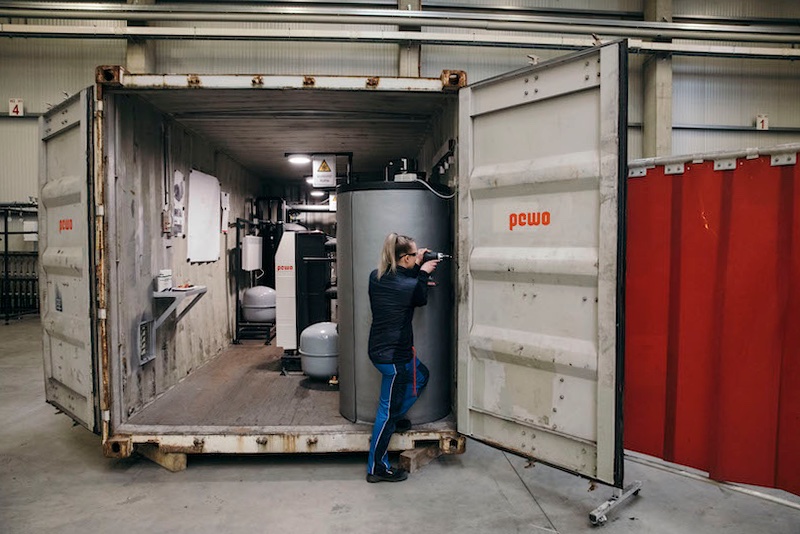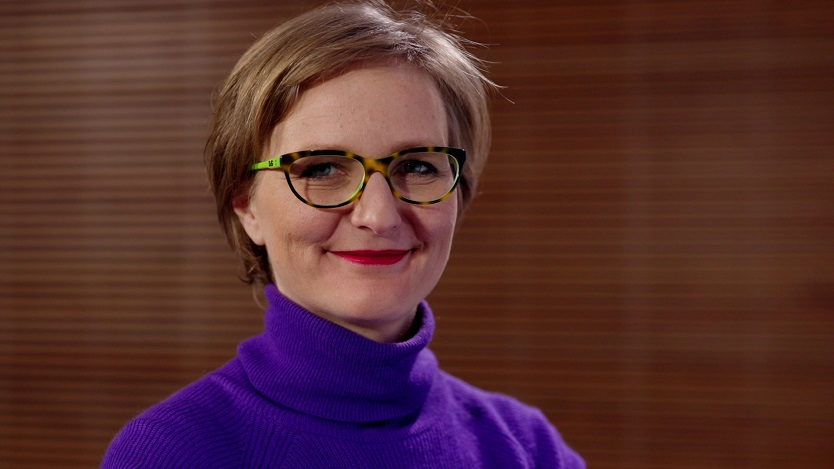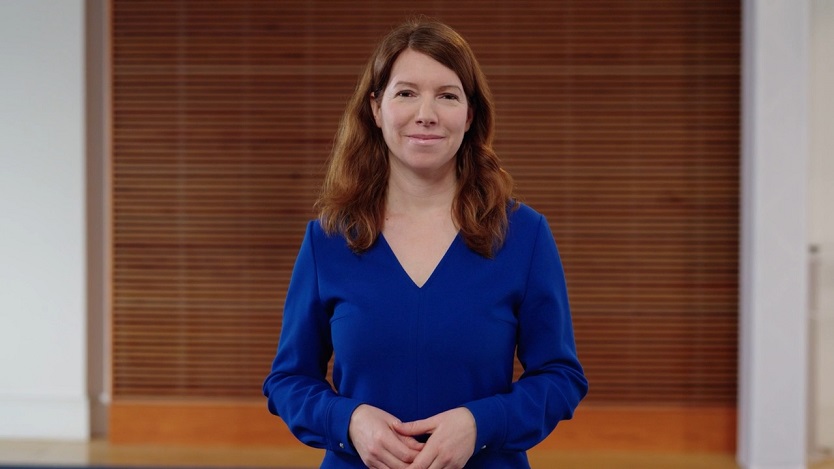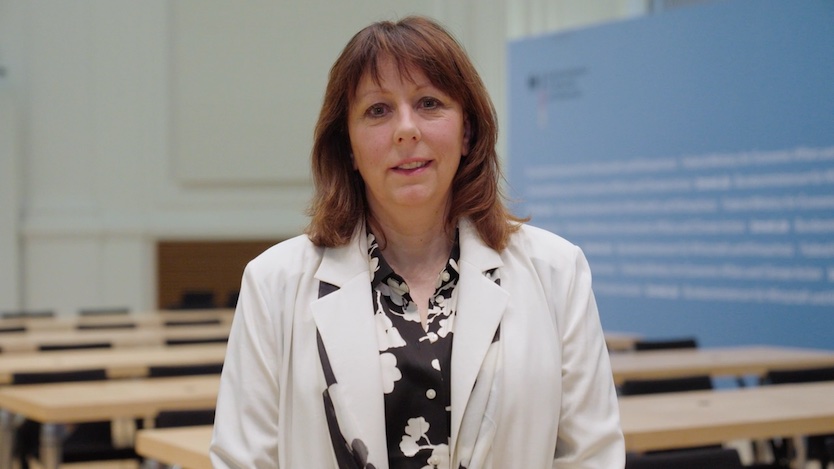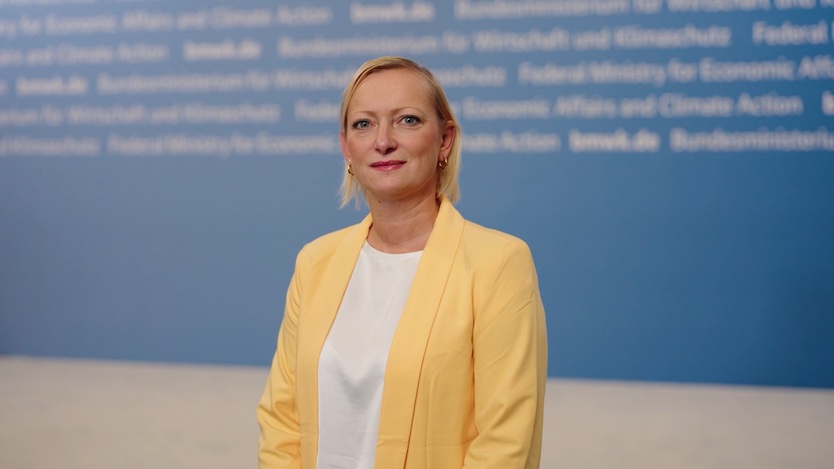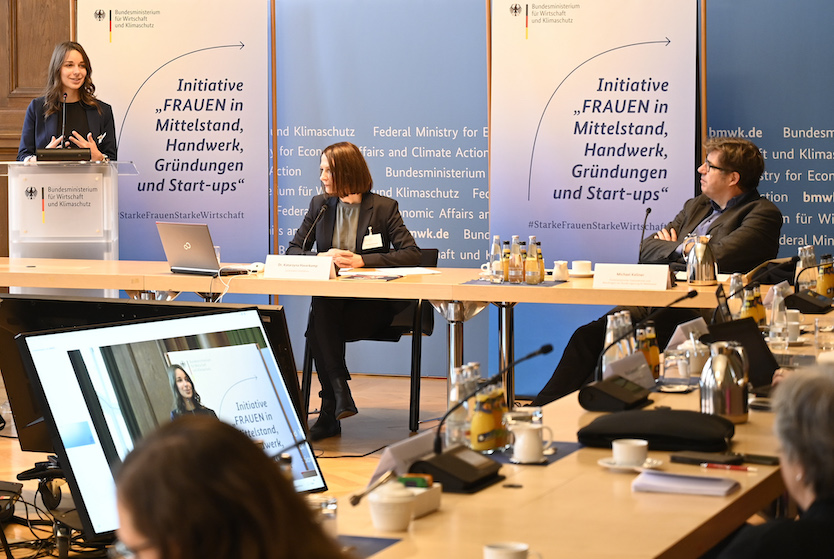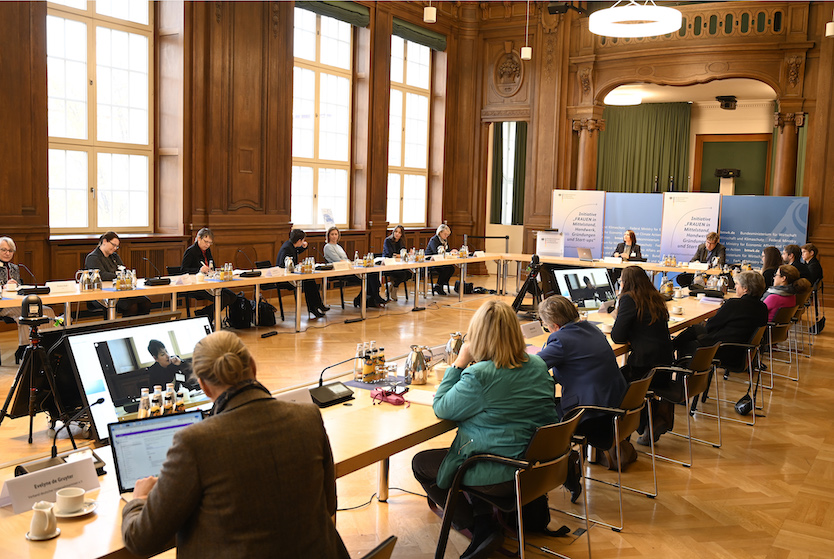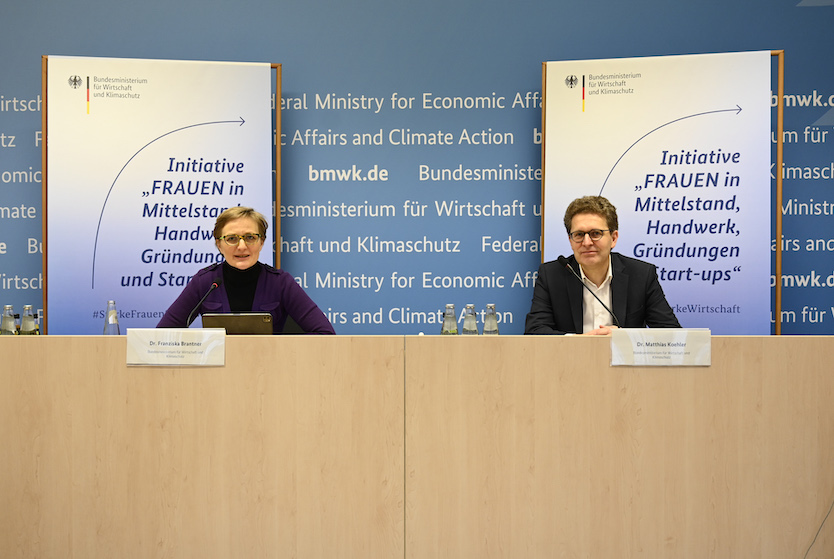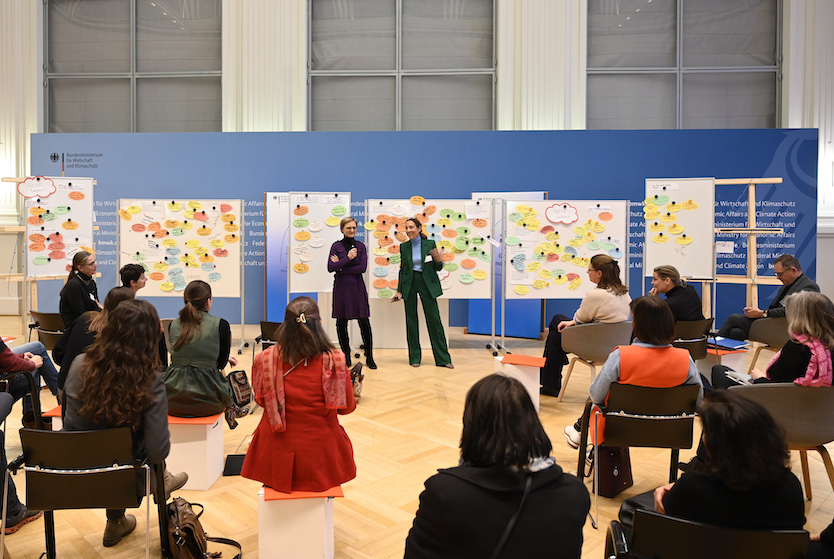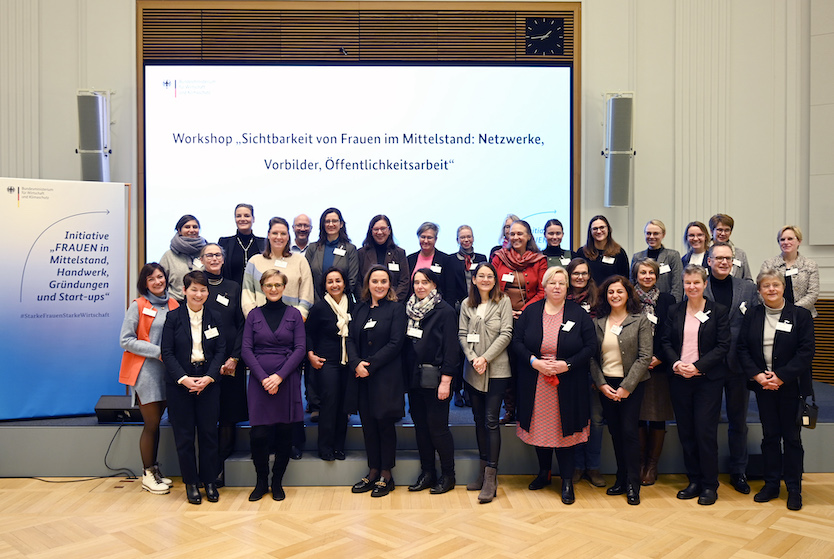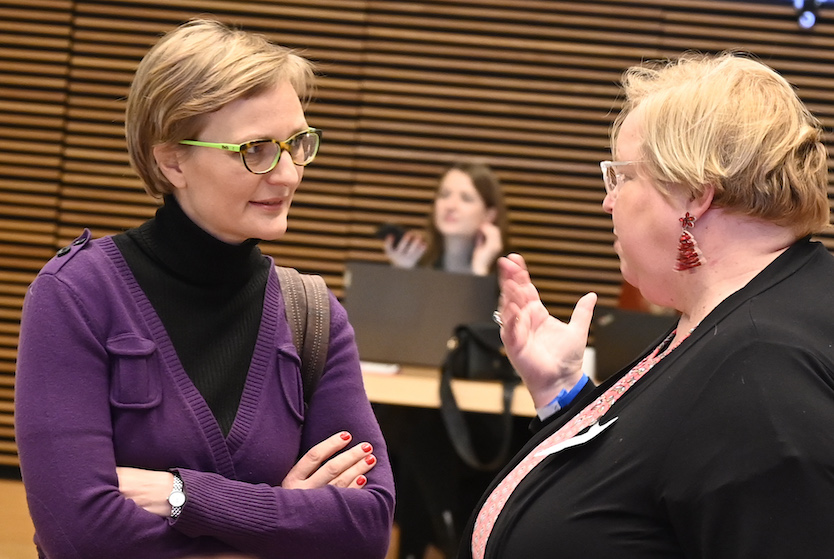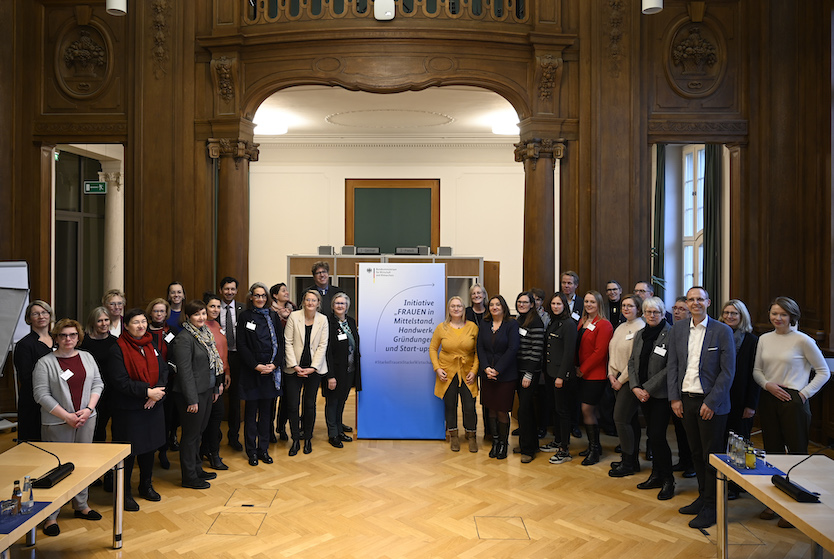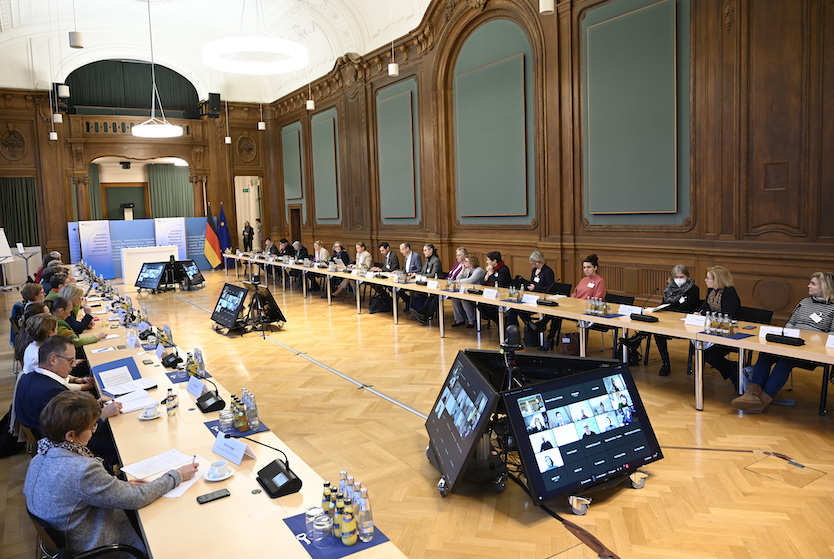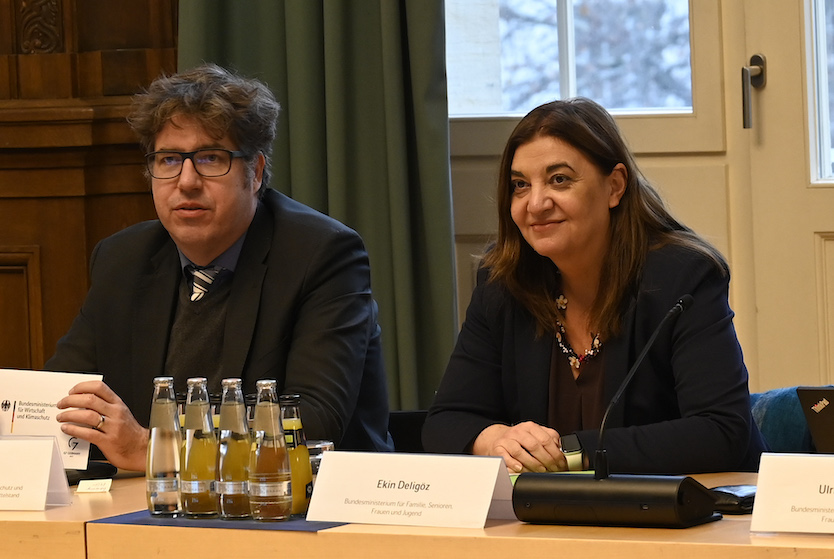Women account for about half of the working population, possess excellent skills and qualifications and can increasingly be found in areas dominated by men. They set up their own businesses, develop new products and services and create jobs and training places. Self-employed women in Germany employ 3.4 million people and provide training for some 100,000 young people. In their roles as decision-makers, they are actively shaping the future of our country.
But there’s still plenty of untapped potential:
- Given the number of women in Germany’s working population, there could be many more in executive positions. The current share is approx. 29%.
- The proportion of women board members in Germany’s 160 listed companies has risen over the past years and has reached an all-time high at 17%. However, this leaves potential for further development.
- There are roughly 3.8 million small and medium-sized enterprises in Germany, of which 16% or 757,000 are managed by women.
- 44% of Germany’s women entrepreneurs run their businesses as a sideline.
- Women account for approx. 25% of Germany’s self-employed employers and for 39% of the country’s own-account workers.
Women-led companies account for a high proportion of businesses in services (89%), in skilled crafts not subject to authorisation (almost 52%) and of social enterprises (approx. 50%).
This still leaves Germany behind some of its international competitors, including the U.S., France and the UK, causing a competitive disadvantage for the country. After all, studies have shown that the more diverse a company’s board of management, the more successful and innovative a company will be.
Economic policy is always also a policy for women
Various multi-faceted approaches are required to allow women to bring their full potential to their working lives and economic activities. For instance, Germany needs adjustments that allow for better reconciliation of work and family/carework and that foster awareness of responsibilities within a partnership, thus strengthening women’s economic independence. Equal economic participation is a matter of social justice, but also creates potential for greater prosperity and sustainability in the interest of the socio-ecological market economy.
The Economic Affairs and Climate Ministry is responsible for SME financing, vocational training regulations, startups and young companies. For years, it has been supporting women through financing and through programmes in the fields of vocational training and entrepreneurship. Examples include:
- the ‘free from clichés’ initiative
- the SCHULEWIRTSCHAFT competition bringing together school students and local companies
- the ‘EXIST – University-based Business start-ups’ programme
- the WOMEN Entrepreneurs network
- participation in the annual Girls’ Day
Gender equality is clearly a firm component of the Ministry’s policy.
Launch of the ‘WOMEN in SMEs, the skilled crafts, new businesses and innovative startups’ initiative
In September 2022, the Ministry’s ‘WOMEN in SMEs, the skilled crafts, new businesses and innovative startups’ initiative was kicked off at a virtual event. On the guest list were committed female entrepreneurs and representatives of associations, initiatives and scientific institutions. They were welcomed by Franziska Brantner, Parliamentary State Secretary at the Economic Affairs and Climate Ministry, and Michael Kellner, also Parliamentary State Secretary at the Economic Affairs and Climate Ministry and the Federal Government’s SME Commissioner. Said State Secretary Kellner: “We want to strengthen women in SMEs and are therefore bringing together several different initiatives. As we design our policy, we in the Economic Affairs and Climate Ministry have various ways to gain an understanding of the interests and the personal situations of female entrepreneurs. This can be done, for instance, in our policies on startups, SME financing, vocational training and through networking.’
Participants gave accounts of obstacles faced by female entrepreneurs and also pointed out that prejudice persists and that a change of mindset is needed. They tabled their own proposals and outlined potential ways forward. It became clear that the work of the Economic Affairs and Climate Ministry, with its strong focus on SMEs, is particularly important for female founders of small companies and for female own-account workers. State Secretary Brantner said: “What is needed in a crisis are strong stakeholders and all innovative minds. This is why this is the time to pave the way for women powering the sustainable and digital transformation. Often, the time to set up a company coincides with the time to start a family. Both must be possible at the same time.”
In late 2022/early 2023, five workshops were held, each one dedicated to some of the issues discussed at the kick-off event. On the basis of these workshops, an action plan entitled More women entrepreneurs for SMEs was drawn up and presented to the public on 23 May. It contains more than 40 measures designed to
- provide female startup entrepreneurs with greater access to financing and venture capital;
- improve the situation for self-employed women and thus attract more women to start their own business or take over an existing company;
- capture girls’ and womens’ interest in climate-related technologies and the energy transition and attract them to skilled crafts and STEM jobs;
- to showcase and honour the achievements of self-employed women of German and foreign extraction.
And – even more importantly –the action plan is the joint work of 32 partners (federal ministries, associations, networks, providers of financing and scientific institutes). Its objective is to pool the various measures undertaken by each of these partners together to create a greater combined impact and reach. Following its publication, the action plan has remained open for new stakeholders wishing to play an active part in its implementation.
The plan is to take stock at the end of this parliament to see how much will have been achieved by then.
